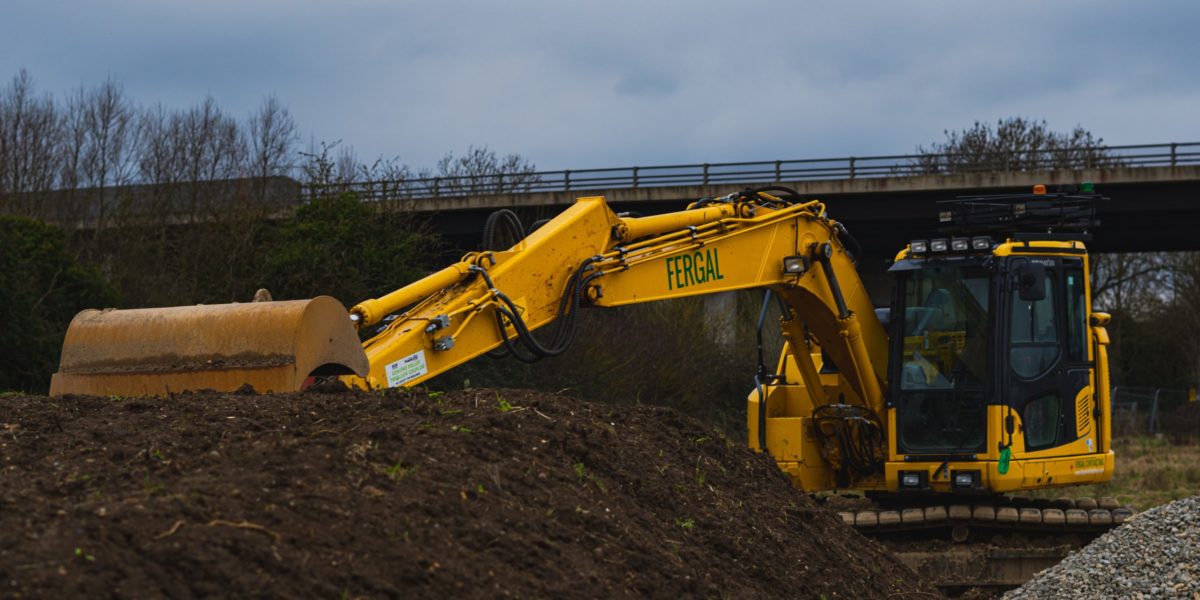The Trans Mountain pipeline expansion project was dealt a major blow last week, after the Canadian government—who purchased the pipeline and expansion plans for $4.5 billion from Kinder Morgan in 2018—announced it would not provide any additional funds for the project.
The corporation revealed on Friday that as the Trans Mountain expansion project enters the second half of its construction, the project cost has increased by 70 per cent, from $12.6 to $21.4 billion, with an anticipated mechanical completion date scheduled for the fall of 2023.
Deputy Prime Minister Chrystia Freeland said that TMC will now have to find third-party financing, “either through public debt markets or with financial institutions.”
The expansion project proposed to build a 1,150 kilometre pipeline between Alberta and British Columbia alongside an existing 60-year-old pipeline, a move that Greenpeace warned would “almost triple the amount of tar sands oil carried through the existing pipeline, and increase oil tanker traffic on the BC coast sevenfold.”
A 2021 study from Simon Fraser University estimated that, based on a full benefit-cost analysis, the construction of the extension would cost Canadians between $8.3 and $18.5 billion. That’s after the CBC reported in Feb. 2020 that the “total cost of taxpayers’ investment in Trans Mountain [is more] than $16 billion.”
The updated cost and schedule of the project was announced on the same day that the Trans Mountain Corporation Board of Directors revealed President and CEO Ian Anderson would retire effective April 1.
In his outgoing statement as President and CEO, Anderson recognized the progress of the project as “remarkable” and failed to acknowledge the direct connection between the construction of pipelines and their negative impacts on climate change.
Trans Mountain said it “will pay billions in taxes and royalties to the federal and provincial governments through the construction and operation of the project over the next 20 years.” That’s in addition to payments between $25 and $50 million annually to British Columbia, “for a total contribution of up to $1 billion,” to be used “by the BC Clean Communities program to fund environmental projects in the province.”
Despite touting “unprecedented levels of involvement and shared decision-making” with Indigenous Peoples and communities—noting 11 per cent of its workforce identify as Indigenous—the Union of British Columbia Indian Chiefs said in a statement last week that they are “encouraged” to hear that the Government of Canada will discontinue any financial support to the project.
“We find it outrageous that the Trans Mountain Corporation took two years to complete this review and inform the public, considering how massive the public investment in the project has been and how devastating the environmental impacts stand to be,” stated Kukpi7 Judy Wilson, UBCIC Secretary-Treasurer in a release. “Keeping Canada in the dark on the state of this project and dumping the press release on a day when all eyes are on the police operations in Ottawa is not the sign of a great economic success story.”
The TMX pipeline updates come in the same week as two land defenders, Zain Haq, 21, and Bill Winder, 69, were sentenced to 2-3 weeks in jail by the BC Supreme Court after being arrested in fall 2021 for “opposing tree cutting.” Haq and Winder pleaded guilty to the charge of criminal contempt of court one day after three others pleaded the same, including a woman expecting to spend her 80th birthday behind bars.
“The Trans Mountain pipeline expansion is not only unsafe and bad for our economy, it disrespects the Indigenous people who have not given their consent, and whose land, water, and means of survival is being threatened,” said Bill Winder in a statement after his sentencing. “This pipeline represents infrastructure for an outdated energy source, takes us further from our Paris Climate commitments, and must be opposed. Our lives depend on it.”
For the NDP, the move to cancel any additional funding to TMX is a welcome move—one that’s come years, and billions of dollars, later than the party hoped.
“[This] news is just more proof that the Liberals should never have gone ahead with the project. Instead, they should have invested in helping communities and workers meet the challenges created by the climate crisis,” said NDP critic for natural resources, Charlie Angus, and critic for environment, Laurel Collins, in a joint statement on Friday.
Angus and Collins called the federal government’s continued justification of the pipeline expansion “a fantasy”, noting that “the Parliamentary Budget Officer reported last year that if the costs increased or if it was delayed again, the project would no longer be profitable.”
Instead they urged the government to end all fossil fuel subsidies and use those funds for low carbon initiatives and create clean jobs for Canadian workers.



